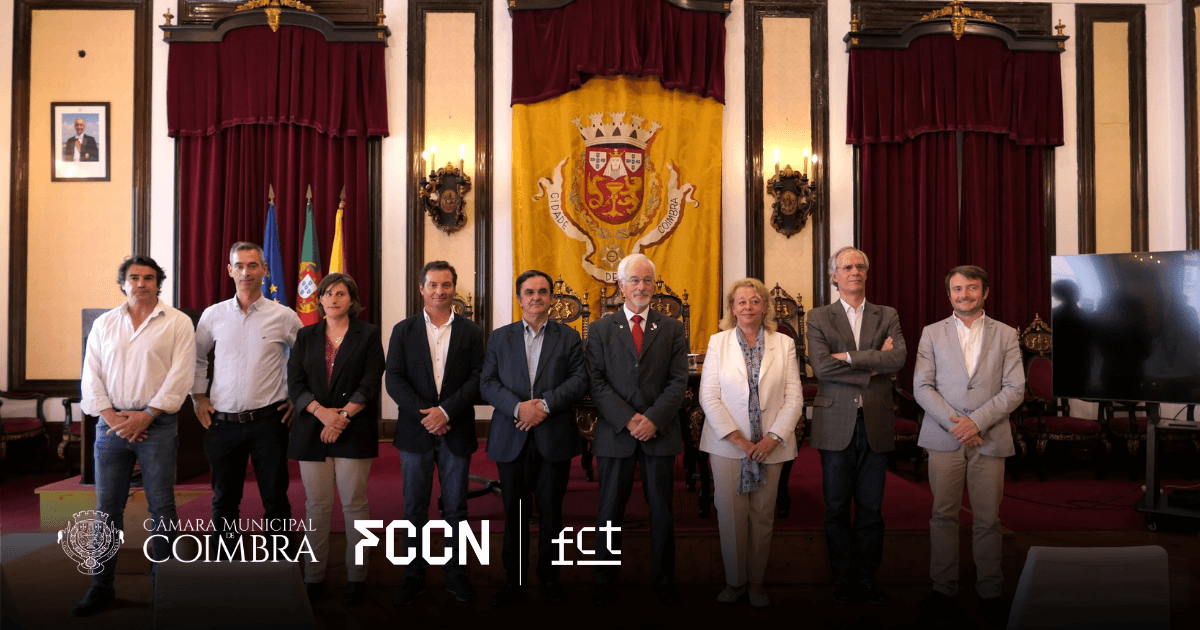Present in over 100 countries, the eduroam service is now incomparably larger than when it was first launched nearly two decades ago. Portugal was one of the countries involved in the creation of this mobility service, which, according to service specialist Pedro Simões, is "an example of success on several levels." Internet access security and mobility potential are some of the highlights of using this service, managed in Portugal by the FCCN Unit.
The eduroam project is about to celebrate its second decade, and Portugal was one of the first six countries to join. How do you assess its implementation in Portugal?
There is no doubt that the eduroam service is a global success story, especially within the Portuguese academic and research community. Portugal has been involved in this project from the outset, having contributed significantly to its genesis and definition. Every year, we see new entities joining this service, expanding the network's footprint and increasing its availability.
Its almost natural presence is evident in the approximately 26,000 eduroam hotspots located in universities and research centers in over 100 countries worldwide. In Portugal, this network can be found in the vast majority of public and private higher education institutions, state laboratories, and other academic organizations.
There are also success stories in which the eduroam footprint has gone beyond the borders of institutions and integrated into the public spaces of the cities where they are located.

What do you think are the main benefits eduroam offers to members of the educational and research communities? Are there any usage tips you can share?
The service's greatest asset is the mobility it offers its users. Its presence solves the problems of accessing Wi-Fi networks anywhere. The motto "open your laptop and get online" is increasingly a reality, even becoming something users expect when visiting another institution. In fact, this connection happens naturally and often without users noticing, especially on mobile devices, which connect automatically.
Another important aspect of the eduroam service is security, both for users and for authentication processes. This has been a premise from the outset and has been constantly reinforced, both with new technologies and with ongoing analysis of emerging security issues in the market.
As for usage tips, I'll repeat what's often communicated to eduroam users before they go. They should ensure in advance that the settings are correct and, whenever necessary, use tools like eduroam CAT (Configuration Assistant Tool). This allows you to automatically configure devices by simply providing a username and password.
"The great advantage of the eduroam service is the mobility it offers its users. Its presence solves the problems of accessing Wi-Fi networks anywhere."
How has the presence and use of this service evolved in Portugal?
From its inception, the eduroam service has been a success story on several levels in Portugal. First, the number of participating entities has steadily increased. Today, 76 entities offer the eduroam network in Portugal, both at their facilities and campuses, as well as in nearby locations, including as a result of specific partnerships.
Similarly, as expected, the number of users has also grown exponentially. This has a significant impact on two fronts. On the one hand, this increase shows that, within institutions, eduroam is the preferred network. On the other hand, from a mobility perspective, it's clear that more and more users are using this service to connect to the internet when visiting another institution. The ease of use, without any user intervention, enhances this.
What are the next steps planned for eduroam in Portugal? And, from a global perspective, what do you anticipate the evolution of this service will be?
In addition to constant technological evolution, the eduroam service has well-defined objectives for Portugal and the other countries where it operates. As a global initiative, it aims to further expand its presence and coverage. With several success stories in our country, we aim to further disseminate its presence, transcending the boundaries of the academic world and making this network an even more consistent presence, especially in locations visited daily by users.












